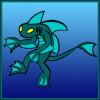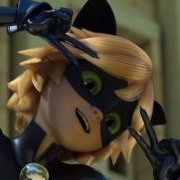Leaderboard
Popular Content
Showing content with the highest reputation on 03/15/2014 in all areas
-
[ tumblr ya] Treatise: Translating the Avohkii : Part 4 : Whoa, hold on! It’s dangerous to go alone! First, read this, then this, then this. All done? Good – let’s get moving. Here’s the full transcription of the Avohkii-text once again: The bolded part of the transcription has already been translated in the previous posts. To recap: Mapaku ke-whenu-ka kitu ak-ila ... “Reader, seek out an individual originating from within a secret underground (place)” This portion of the passage seems reasonably self-sufficient, and I have chosen to analyze it as an independent clause: it contains a verb, its arguments, and their modifiers. If we start from that assumption, it stands to reason that the rest of the passage will form its own unit/clause, separate from the first clause but presumably still related in meaning. We can start by identifying already-familiar terms in this portion of the inscription. We actually have an easier time of it than before. Makuta is pretty self-evident, as is taka. The relevant entries are as follows: makuta |n.cmpd.| 1. master of knowledge; 2. higher knowledge [mult. potential etymologies; one proposed etymology is makuta < ma-akuta, from ma(t) “mastery, control” and akuta “knowledge”; another proposed etymology is makuta < mai-akuta, from mai “up, upward, above” (variant of mi, see entry) and akuta “knowledge”] taka |n.| firelight, torchlight, illumination; heat [taka < ta-ka, from ta “elemental fire” and ka “power, force, ability”, yielding a sense of “light cast by fire/torch; light that leads the way”] Alright, now that we’ve identified some familiar terms, let’s continue with the same line of reasoning we used for the first clause: if this section of the passage is a clause in itself, we’d expect there to be a verb and some individual(s) involved in the action of the verb (subject, object, etc.). How do we go about identifying the verb? Well, one aspect of Matoran syntax that hasn’t come up much yet in this discussion (but probably should) is the fact that, according to the only example of a clausal-unit that we have, it appears that verbs in Matoran stand as the final element in a sentence. The example that we have is the phrase Manas zya, translating to "Attack the monster!" The verb is zya "(to) attack", while the object is manas "monster". This is an imperative (command) clause, so technically we can only determine that verbs appear in final position in simple imperative constructions – other clause-types might be different for all we know. Then again, for all we know, the verb-final pattern might be a strict rule for independent clauses in Matoran. For what it’s worth, verb-final patterns show up in ~40% of human languages, so Matoran wouldn’t be all that strange as a non-human language. Well...let’s see where the verb-final logic leads us: Based on its clause-final position, we might assume that taka is the verb. Does this make sense? Hm...taka doesn’t necessarily look like the only example of an actual verb that we have – zya "attack" – but of course morphophonological similarity isn’t a requirement, even if that’s pretty much the only thing we have to go on. It really depends on the categorial status of taka. Do we know anything about that? Possibly, yes. Taka shows up in Takanuva. Nuva means "new". It’s clearly an adjective in its other uses (Tahu Nuva, Gali Nuva, etc.). If we assume that nuva is generally an adjective, that would imply that taka is not verbal, but nounal. Then again, an argument could be made that nuva can modify nouns or verbs, or that Takanuva is an exception based on the fact that nuva appears to be morphologically incorporated into taka, rather than a syntactic modifier as in the other cases. All of these arguments are equally legitimate. This is kind of a sticky situation. On one hand, we’d rather not violate the only potential syntactic rule we know of by looking elsewhere for the verb. On the other hand, it’s iffy to just define taka as a verb. How to decide? Ultimately, the decision should be made based on its overall consequences. If we decide to redefine taka as a verb, that will entail making a variety of alterations to our understanding of Matoran etymology (how modifiers work, the categorial status of nouns and verbs, etc.). These are things that, to some extent, are already "established". In contrast, if we assume that Matoran is not strictly verb-final, we aren’t actually violating any established rule, since we’re simply postulating that there’s more syntactic variation than the single piece of evidence we have suggests. The second option is far more appealing to me, so I’ll run with it. Taka is not the verb – something else is. Where do we go from here? Let’s look at the other candidates for verbhood: We can probably cross out makuta, since that has a pretty well-established nounal status. That leaves ahano, nano, and atuana. Previously, I’ve already hinted that I think atuana contains a variant of toa, so I’ll cross that off as well. That leaves nano and ahano. Hm...time for some more educated guesswork. If Matoran is not verb-final, are there any syntactic patterns that we can observe at all? I’d rather not jump to the conclusion that Matoran word-order is completely free, since that would leave us without any direction whatsoever. Instead, we might come to the more conservative position that Matoran is verb-final in independent imperative clauses. Think about it: Manas zya is an independent imperative clause and the verb is in final position. Furthermore, I’ve also translated the first part of the Avohkii passage as an independent imperative clause, and the verb happens to be in final position there. That’s a convenient match, go figure! So if we say that the verb-final syntactic pattern is restricted (at the very least) to these types of clauses, we are free to postulate a different pattern for other clause-types. Specifically, I will propose that the clause under discussion (the second half of the passage) is not independent, but is instead dependent upon (or "subordinate to") the first clause. This is because of the status of the first clause as a command or instruction: do X. If the first clause is defined in this way, what is its relationship to the second clause? It makes sense that the second clause would describe something about how/why the command of the first clause must be performed. For example, we might interpret the relation as cause-effect: do X so that Y. Alright, so the second clause is subordinate. How do we apply this to the translation? Well, if Matoran is verb-final in independent imperative clauses, a simple pattern that could be used to mark dependency is to reverse the standard order, i.e. to place the verb at the beginning of the clause: verb-initial. This is actually pretty milquetoast when it comes to human languages – different syntactic patterns are used to mark dependency-status all the time, so I don’t have many qualms about postulating it for Matoran. However, this does lead us to a specific conclusion with respect to choosing between candidates for the verb: ahano is the first word in the clause. If we adopt the assumption about syntactic patterns above, ahano would be the verb. This is progress! Very small progress, but progress nonetheless. Even so, this post has been really wordy, and it’s getting a bit too long at this point, so for now, I’ll leave you with a recap of the translation. It’s a slow crawl, but hopefully worth it by the end: Mapaku, ke-whenu-ka kitu ak-ila ... “Reader, seek out an individual originating from within a secret underground (place)” ... ahano nano atuana makuta taka. "(so that) VERB ... [smthg. related to Toa] Makuta light/illumination." Still on the to-do list is determining a translation for ahano, as well as nano and atuana, and we also have to flesh out the relations between these elements and makuta and taka. It’s a daunting task, but I think we’ll make it. Next time.1 point
-
Alright Tyler, you're bringing this on yourself. Actually, nah, because you do make great points and I do think it'd be interesting to see Tony killed off. And that's me talking about my favorite superhero here, haha. All said, Iron Man 3 went where I hoped it would go (a vulnerable Tony dealing with his mortality) and the ending made sense to me (he's made the suit before, he can made it again. Tony became Iron Man when he chose to break out of prison and start saving lives instead of weapon profiteering). As for 12 Years, yeah, I agree with you. There's no doubt that it's a fantastic movie (I went in to it mildly biter because I wanted to see Desolation but that was sold out and this one class I was in had fawned over it in all the wrong ways) and was pleasantly surprised. It's affecting and the sort of movie that needs to be made, but I guess I just really liked Gravity. I also think that, as great as 12 Years is, it's time for us as a culture to move past then-slavery and look at life and inequality now. But that's a whole 'nother topic. I guess I wanted Gravity to get the Oscar, but there's no doubt that 12 Years deserved it.1 point
-
Honestly, I agree with most of this list. Rush had a stellar set of performances at its helm (Chris Hemsworth needs more star power and he needs it yesterday), Much Ado was great just because all the Whedon collaborators I love were mostly in one place, I loved Rockwell and Steve Carrell in The Way Way Back, and my love for Edgar Wright is unquenchable and hot like a thousand suns. Our opinions only diverge on two things - 1. 12 Years a Slave truly did deserve Best Picture nods off the power of performances and McQueen's always-stellar direction, and while I do love Sandra Bullock and her performance in Gravity was stellar considering she was almost the whole movie, 12 Years affected me more throughout and honestly is a movie I can't ever picture myself watching again, just because it was too painful for me to even consider revisiting as a pleasure watch. 2. Iron Man 3 was a disappointment through and through. I get why people liked it, and I do give all props to Robert Downey, Jr. for moving away from the "typical" Tony Stark performance, I felt that the movie in general couldn't really stack up against his performance. I get what Shane Black was going for with the Mandarin twist, but the script didn't make Guy Pearce (oh, poor Guy Pearce...) a powerful enough villain for the subtext to really deliver the way it could have and should have. Moreover, I couldn't help but feel slightly disappointed, in fact, with the ending of IM3. I read your blog post on the subject, and by and large I agree - getting the arc reactor and shrapnel was central to the conclusion of Tony's arc over his feature films, and really the only further character growth he could have gotten after the end of The Avengers. My initial belief, to be honest, is that he could have (and maybe should have) been killed off at the end of the movie and it would have left a final, epic punch to the gut for the MCU at the end of the first wave of movies. Iron Man 3 was supposed to be the film that changed my mind, so I get why it had to be made. The problem is, I can't say it totally convinced me. Tony Stark overcomes odds. It's what he's always done. He survived captivity in a cave in the Middle East and built himself his own get out of jail free card. He stopped making weapons and kept turning profits anyway. He revealed himself publicly as Iron Man and made it work - the man became an in-universe and out-of-universe brand unto himself. He shelved his long-standing issues with his father and conquered his own certain death from palladium poisoning in Iron Man 2. In The Avengers, he realized that he can't keep inventing himself get out of jail free cards forever. Consequences roll around for everyone eventually. Bad things happen. And good people die. Like you said - IM3 was supposed to answer the central question of what Tony Stark was without the Iron Man suit. To the credits of Shane Black and Robert Downey, Jr., the first and second acts of the movie do just that. The central problem is the twist with the Mandarin - as soon as that part of the movie hits, things begin to slowly derail, sparks begin to fly, and it doesn't work the way it should - the way it could - have. Because Downey's Tony Stark doesn't just create his own odds - directly or indirectly, he creates his own demons. Even passing over his PTSD and alcoholism (something I would like to see truly addressed at some point, even if there's never another Iron Man film), Obadiah Stane turned against him because he was an incurable playboy, and later threatened to totally torpedo Stark Industries. Ivan Vanko saw Tony reaping the benefits of technology that his father had helped pioneer and wanted revenge. Aldrich Killian is a different case - where the previous two Big Bads had been born of relatively accidental, almost harmless circumstances of Tony's making, the Mandarin was a cut and dry example of Tony's hedonism, callous disregard for other people, and bad attitude coming back through the years to bite him in the ######. It's a true example of consequences personified - it's Tony fighting his old demons with no high ground, no upper hand, trying to put them down once and for all... ...And Pepper ends up saving the day. I love Paltrow, too. I love Pepper Potts, and watching her take names and kick butt throughout the trilogy has never not been a blast and a half. But she also put a spotlight on the central problem of Tony Stark's character, and it was never more obvious than at the end of IM3 - he's the world's most famous man, he fights demons for a living, and he can conquer them all...except his own. In that case, he needs someone else to bail him out, just as he always has, because he's not tough enough to deal with them. Which would be a fantastic ending, to be honest - one of my favorite five series finales of all time was Not Fade Away, the final episode of Angel, which ended on a cliffhanger representing that the good fight is never over, but it's no reason to not keep fighting. If the ending of Tony's (presumably) final solo outing had been dressed up that way, it would have been a fantastic way to top his character off until Avengers 2. But it wasn't portrayed that way, and the messages ended up clashing. Who is Tony Stark? Where does he end, and where does Iron Man begin? Did Iron Man ever really begin at all? That question should've been answered, and to me it wasn't. That's why I didn't have it in my top 10. -Tyler (PS: I didn't intend to leave such a massive iron curtain of an essay in your comments, haha. I'm just extremely passionate about TV, movies and music on a website where a lot of people don't have nearly the same tastes as me, so it's all kind of bottled up until I have a reason to talk about it.) (PPS: Fruitvale Station is a masterpiece.)1 point
-
A day Celebrating pie. er Pi. But it's celebrated with pie. so happy Pi day everyone, go eat some pie. Because pies are circles. not because pi and pie sound the same.1 point
-
I'm typing this a few days before the set publish date, because that day I'll be busy, but I feel like it would be a good time to take a moment and look back. No, this is not me announcing my departure or anything like that, it's just something I really wanted to take the time to say. I've met and talked to a lot of people online over the years, and a good deal of that activity has been centered around BZPower and the BIONICLE fandom. I've had other interests, of course, but those have come and gone, and I've never invested as much in anything as I have in my LEGO hobby and the community around it. I didn't start on BZP. I didn't have my own email address (or any at all) until the beginning of 2008, so I started on wikis like BIONICLEsector01. I had a good run on there and made some friends. Cholie, Exo Malakai, Varaka, The Alchemyst/PoI, Bioran, Lihyahm, and all the rest of those people I can't quite remember because it's been half a decade. It was a great time. But then I joined BZPower, and I slowly lost interest in the chronicling and got more into the discussing. Here I met others who shared my interests, or shared some interests with people who shared some of my interests, or just happened to be in the same AIM group chat I was in. Really, the people I met through "bzplol" were my friends for the first couple of years here. Teebert, Wrack, Necro, Ran/DX, Taka-Tahu-Nuva, Arch-Angel, Kopakalaka, Lluvio, Disky, and others (I feel really bad that I can't remember everyone). I had so much fun talking about Code Lyoko or politics or whatever else on the spectrum came up. I really miss it a lot. A lot of you (yes, you, all the people I've just listed, and all the ones I've forgotten) aren't around BZPower anymore, and haven't been for a while. We haven't talked for years, I don't know how to contact you, you've probably changed in that time (and so have I), and you may want nothing to do with me anymore. However, I have something to say to you. Thank you. Middle school and high school are usually marked by obnoxious angst and social awkwardness. But they're also a time when you're really becoming who you will be in life. It's a lie to say that nothing else has affected me the way this community has. I've had pretty major events in my life that will no doubt define me forever. But to say that you've had no effect on me would be as equally wrong. I feel confident, however, in saying that I wouldn't be who I am or where I am today had I not met you all. You were people I could talk to about my interests, people I could stay up until 2 or 3 AM chatting with about whatever came up, people who were there and put up with me. Those moments were worth falling asleep in school for. I may have never seen some of your faces or heard some of your voices or even may never have known some of you as anything but a screen name, but you were willing to give me a chance. So to you, the people who in many ways welcomed me to the internet, I say thank you. Thank you for everything. (This entry will be published at 7:29 PM Eastern time on March 11, 2014, exactly six years after the first blog entry I ever posted on BZPower.)1 point
-
1 point
-
2008 is full of Makuta -- even the canister villains are Makuta. These masters of power have quite a lot of, well, powers. Remembering them all can be tricky, but rewarding for fun roleplaying, fan fiction writing, or even just enjoying the Bionicle story. So today the Bones Blog brings you an easy way to "decode" and memorize all the Makuta powers. Basics First, all modern Makuta have transcended normal life and death. This means they all:Exist as antidermis energy-gas inside strong Protosteel armorCan use mask powers, each has their own maskCan slowly die if armor is shattered -- gas slowly scatters so they must find another host fastAntidermis can control Matoran, etc.Don't need sleep, foodCan absorb other beings, killing them and adding to the Makuta's mass, or absorb stuff.In addition, they were all once scientists that made Rahi creatures for the whole universe so often experiment and still know how to make new creatures or mutants. They became guardians of certain zones before betraying Mata Nui, and came to learn just about all there is to know in the Matoran universe. All current Makuta are evil. Mask Powers:Makuta of Metru Nui -- ShadowsAntroz -- Corruption (decompose objects)Chirox -- Silence (make target deaf, mute)Vamprah -- Hunger (drain light, energy, positive emotions, turn Matoran into Shadow Matoran)Icarax of Karzahni -- Wears Shadows for now, normal mask unknownMutran -- SilenceSpiriah of Zakaz -- CorruptionKraata Powers:Makuta can make kraata slugs out of their substanceKraata come in 42 types, each with their own powerKraata can that infect masks and control the wearerCan put Kraata in energized protodermis to make Rahkshi armor for another Kraata to control like a vehicle with enhanced power and a staff to focus itNow, can carry Tridax Pods in their chests, with Shadow Leeches insideShadow Leeches are mutant Kraata that turn Matoran into evil Shadow Matoran42 Rahkshi Powers42 can be thought of as seven groups of six, like seven Toa teamsEach power can be roughly equated with the six elements of the Toa MataArranged counterclockwise from Ta-Wahi on Mata Nui Island, elements are: Fire-ishWater-ishSton-ishEarthishIce-ishAir-ishThe Seven Lists: Here's the powers, with the justifications for how I've arranged them. Note that of course many are a stretch, but the idea here is to aid memorization. Most Makuta-ish: Most easily identified with Makuta. Shadow and Shapeshifting are obvious, Mind Reading and Illusion were tactics Makuta used most often in the Chronicles Books, Makuta teleported the Toa to the surface after they beat him in MNOG, and Chameleon goes with Shapeshifting.Darkness -- Leads all Makuta powers; fire = leaderShapeshifting -- Water is fluid like Makuta's shapesMind Reading -- Turaga Onewa had a mind mask power Teleport -- Biggest stretch Chameleon -- Ice can be harder to spot than many thingsIllusion -- Turaga Matau had an illusion mask powerRahkshi Mata: Powers of emotion and destruction, these are the six Rahkshi Makuta sent to stop the Toa of Light from coming.Fear -- Red Rahkshi in Mask of Light storyDisintegration -- Blue Fragmentation -- Brown Hunger -- BlackAnger -- WhitePoison -- GreenKal Elements: Still not sure why Makuta have these six elements and not the main six elements themselves, but hey. Electricity -- Red Bohrok KalMagnetism -- BluePlasma -- BrownGravity -- BlackSonics -- WhiteVacuum -- GreenEnvironmental: Control over, or resistance to, what is surrounding you is what makes these powers stand out.Fire Resistance -- Fire Toa have thisWeather Control -- Water affects weather stronglyRahi Control -- Po-Koro MNOG had more visible Rahi than other KoroInsect Control -- Bugs and dirt mixIce Resistance -- Ice Toa have thisPlant Control -- Le-Wahi is full of plantsStrong Attacks: These are all destructive powers. All but molecular disruption are easily identified as "projectile" attacks of some sort.Heat Vision -- Fire's hot yoChain Lightning -- Lightning hits water = bad, reminds me of a water beamLaser Vision -- Lasers could carve rockMolecular Disruption -- Similar to rock coming apart into dirtPower Scream -- Would shatter ice, goes with white Kal of SonicsCyclone -- DuhSubtle Attacks: You are getting veeeeeery sleepy. Now you are asleeeeeeep. Now you're being infeeeeeeected.Stasis Field -- Vakama made Vahi; Tahu used it to put Kal in time-stasisConfusion -- Underwater navigation is confusingSlow -- Pohatu is slow without his mask power of speed.Sleep -- It's dark underground, like night when people sleepSilence -- Kopaka is silentAccuracy -- Projectile accuracy could be done via air currents tooPower-ups: These all affect the Makuta himself more so than a target, giving the Makuta a special ability, useful in battle but defensive rather than offensive.Limited Invulnerability -- Sorta like the Mask of ShieldingAdaptation -- Common example is developing gillsDensity Control -- Rock is denseElasticity -- Dirt can bend, as it wereQuick Healing -- Ice can be quickly shaped or refrozen, etc.Dodge -- Air Toa are acrobatic, can dodge wellNOTE: There may be more powers; for example MoMN had a "Shadow Hand" power in LoMN but it's not known if all Makuta have this power. In roleplaying and fanfictions, it's plausible to make up new powers for them. In the story, we might learn of other powers in the future. This content also available in topic form here.1 point
This leaderboard is set to New York/GMT-04:00







